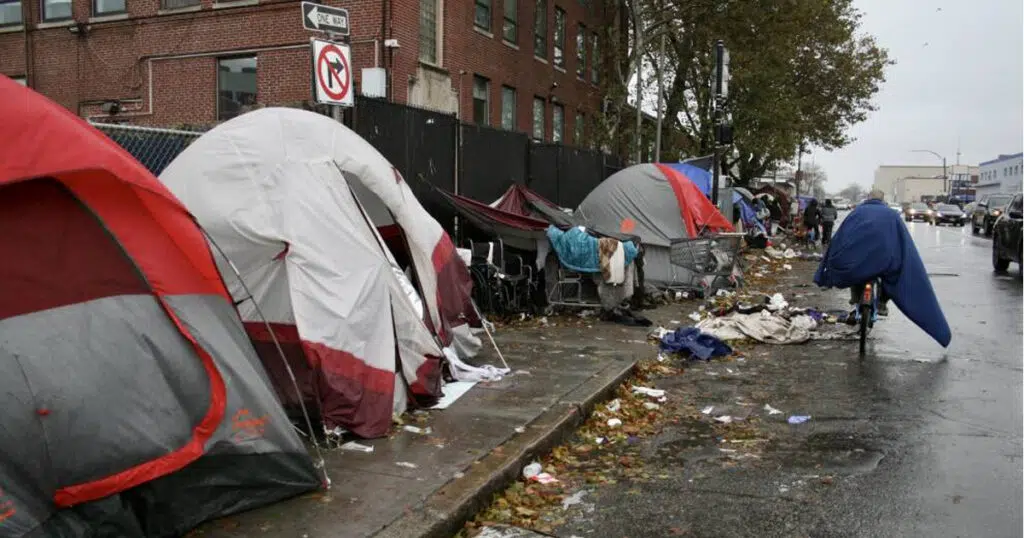
Cities spend millions on homeless while they count the number of those in need
Cities across the country are counting their homeless in an effort to get a handle on how big the problem is.
In the city of Detroit, 25 teams of volunteers will count the number of homeless throughout the city on Jan. 31.
In Denver, 25 teams counted homeless on Jan. 22.
The “Point-In-Time” tracking occurs in January every year and is required by the U.S. Department of Housing and Urban Development, which uses the information when determining federal funding.
In California, two cities have created departments to deal with the issue.
The city of San Francisco established a Department of Homelessness and Supportive Housing in 2016, and it was budgeted for $150.6 million in 2017. By 2023, that department’s budget had more than doubled to $309.6 million, according to city documents.
Voters approved the funding for homelessness services in 2017.
As stated in the original documents, in 2016, Proposition J created a homeless housing and services fund that would provide services to the homeless, programs to prevent homelessness, and assistance when transitioning from homelessness, allocating $50 million each year for 24 years.
In 2017, the number of homeless persons in San Francisco was 6,858, and the city saw another increase of 3.5% during the pandemic, hitting an all-time high of 8,035 in 2019, with the last recorded number being 7,754 in 2022.
In San Diego, The Homelessness Strategies Department, created in Oct. 2021, has seen increased spending since being created, with a total budget of $36.7 million in 2021 and $44 million in 2024.
The city reported 5,082 persons experiencing homelessness and 2,600 unsheltered in 2019, and as of Jan. 2023, reported 6,500 persons experiencing homelessness and 3,285 unsheltered.
San Diego has seen a 26% increase in unsheltered homeless persons since 2019, according to reports.
HUD defines homelessness as living in a place not meant for human habitation.
Some cities are seeing taxpayer support for the increased spending on homelessness.
A poll given to Boulder, Colorado, residents shows they agree that homelessness is a significant problem in the city and are supportive of community-based solutions, with 8 in 10 respondents deciding it is essential or very important to contribute to mental health programs, shelter during severe weather, and substance abuse programs.
The poll also showed that 7 in 10 respondents believe it is essential or very important to contribute to funding for supportive housing, as well as housing and renting assistance programs.



